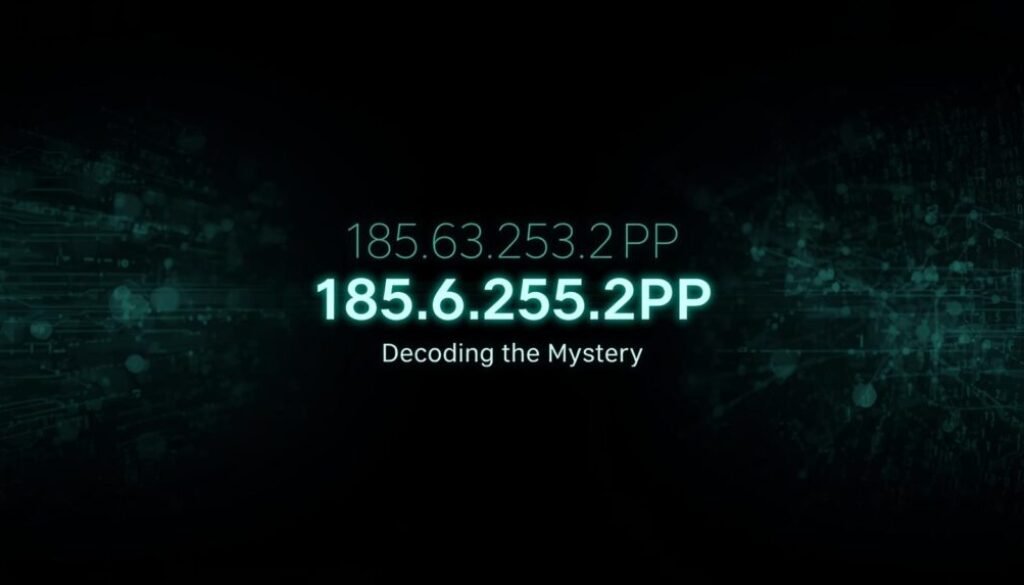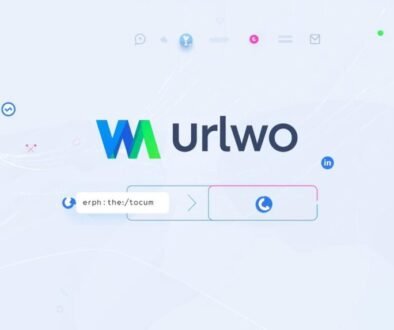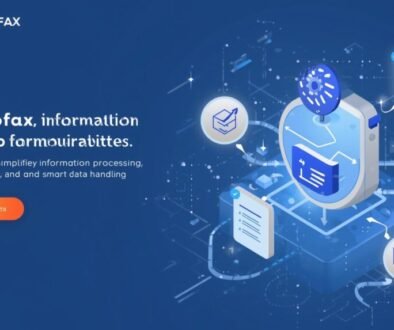185.63.253.2pp: Everything You Need to Know About This Mysterious IP Address
Introduction
If you’ve come across the term 185.63.253.2pp, you’re not alone. Many users and IT professionals have recently been searching for it after seeing it appear in server logs, analytics tools, or web firewalls. At first glance, it looks like an IP address, but the unusual “pp” suffix raises questions.
So, what exactly is 185.63.253.2pp? Is it a real IP address, a cyber threat, or just a data error? This article dives deep into the mystery, exploring its origins, meanings, and security implications — and how to handle it safely.
What Is 185.63.253.2pp?
In standard networking, an IP address follows the IPv4 format: four numerical blocks separated by dots, for example, 185.63.253.2. However, the inclusion of “pp” at the end makes 185.63.253.2pp invalid in technical terms.
So, 185.63.253.2pp is not a legitimate IP address recognized by internet protocols. Instead, it may represent:
- A typo or data formatting error
- A custom identifier or tag added to a legitimate IP
- An obfuscated entry used in testing, scraping, or security evasion attempts
The base IP, 185.63.253.2, is active and traceable — and understanding it is key to decoding the rest.
Tracing the Base IP: 185.63.253.2
When we analyze 185.63.253.2, we find it originates from the Netherlands, hosted by HostPalace Datacenters Ltd., a legitimate hosting provider. The IP belongs to the AS60064 autonomous system.
Public data from IP lookup services like AbstractAPI and IPinfo.io show that the address isn’t currently flagged for malicious activity. It’s a regular server IP that may host various websites, virtual machines, or proxy services.
However, because data centers often lease IPs to multiple users, one client’s activity can affect the reputation of the entire block. That’s why the extra “pp” might have been added — possibly by a monitoring system or a local tagging process.
Why “185.63.253.2pp” Is Not a Valid IP
Here’s the technical explanation:
- The suffix “pp” contains letters, which violate the numerical-only rule for IPv4 addresses.
- Valid IP addresses use the format: A.B.C.D, where each value ranges from 0–255.
- As such, any entry with extra letters (like “pp”, “abc”, etc.) will not resolve in DNS or routing systems.
Because of this, 185.63.253.2pp cannot be pinged, traced, or accessed directly through a browser or network connection.
Possible Meanings Behind the “pp” Suffix
There are several interpretations for why “pp” might appear after an IP:
| Hypothesis | Explanation |
| 1. Typographical Error | Someone may have accidentally entered “pp” at the end of an IP address while typing or logging data. |
| 2. Custom Tag or Label | Certain systems or developers add short tags (like “pp”, “srv”, or “dev”) to mark types of connections or servers. |
| 3. Logging or Formatting Issue | A log parser may have merged two fields, such as IP and environment code, producing a malformed entry. |
| 4. Obfuscation for Privacy | Some developers or researchers alter IPs with letters to anonymize real addresses in public data. |
| 5. Suspicious Activity Attempt | Attackers sometimes modify standard IP structures to bypass filters that only detect valid addresses. |
In most real-world cases, the first three explanations are more likely than the last.
Is 185.63.253.2pp Dangerous?
While 185.63.253.2pp itself isn’t an active IP, its appearance in logs or traffic may indicate something worth investigating. There are three possible risk levels:
- Low Risk (Typo / Formatting Error)
Most likely, the “pp” suffix was added accidentally or through a data error. You can usually ignore it after confirming no real traffic originated from it. - Medium Risk (Internal Tagging)
If your monitoring system adds “pp” tags, make sure the convention is documented so that it doesn’t cause confusion later. - High Risk (Suspicious or Malicious Intent)
If multiple invalid IPs (like “xxx.xxx.xxx.xxxpp”) appear in short intervals, it could mean bot probing, fake referrers, or attempted injections. In such cases, check your firewall logs, WAF, and rate limits.
How to Analyze 185.63.253.2pp Safely
If you’ve found this entry in your web or application logs, follow these steps:
- Isolate the Base IP:
Remove the “pp” suffix to reveal 185.63.253.2 and check if the base IP shows up in your other logs. - Use IP Lookup Tools:
Visit reliable sources like IPinfo.io, AbuseIPDB, or AbstractAPI to analyze its ownership, location, and reputation. - Scan for Activity Patterns:
If this IP shows repeated access attempts, note timestamps, frequency, and request paths. It can help identify bots or scrapers. - Check for Corrupt Logs:
Sometimes, database migrations or parsing tools accidentally alter text fields, creating entries like 185.63.253.2pp. - Update Security Filters:
Configure your Web Application Firewall (WAF) or Intrusion Detection System (IDS) to detect invalid IP formats — this helps prevent malicious injection attempts.
How to Prevent Similar Issues
To avoid confusion with malformed IPs like 185.63.253.2pp, consider these best practices:
- ✅ Validate Log Entries: Implement IP format validation before storing logs.
- ✅ Use Structured Logging: JSON-based logging avoids string concatenation issues.
- ✅ Train Staff: Educate your IT team about spotting non-standard network identifiers.
- ✅ Automate Monitoring: Tools like Splunk, ELK Stack, or Graylog can automatically flag irregular IP formats.
- ✅ Check Web Traffic Regularly: Review logs weekly to detect early signs of spam or intrusion.
Final Thoughts
In conclusion, 185.63.253.2pp isn’t a valid or dangerous IP by itself — but its presence may reveal useful information about your network or data collection process. Whether it’s a typo, a malformed entry, or a security test artifact, understanding how to interpret such anomalies is vital for digital security and accurate analytics.
Remember:
- The valid portion is 185.63.253.2, located in the Netherlands and linked to HostPalace Datacenters Ltd.
- The “pp” suffix is non-standard and likely a human or software error.
- Always monitor logs and cross-check IP activity to ensure your systems remain secure.
Staying informed about anomalies like 185.63.253.2pp helps you protect your website, maintain SEO accuracy, and strengthen your overall cybersecurity posture.



